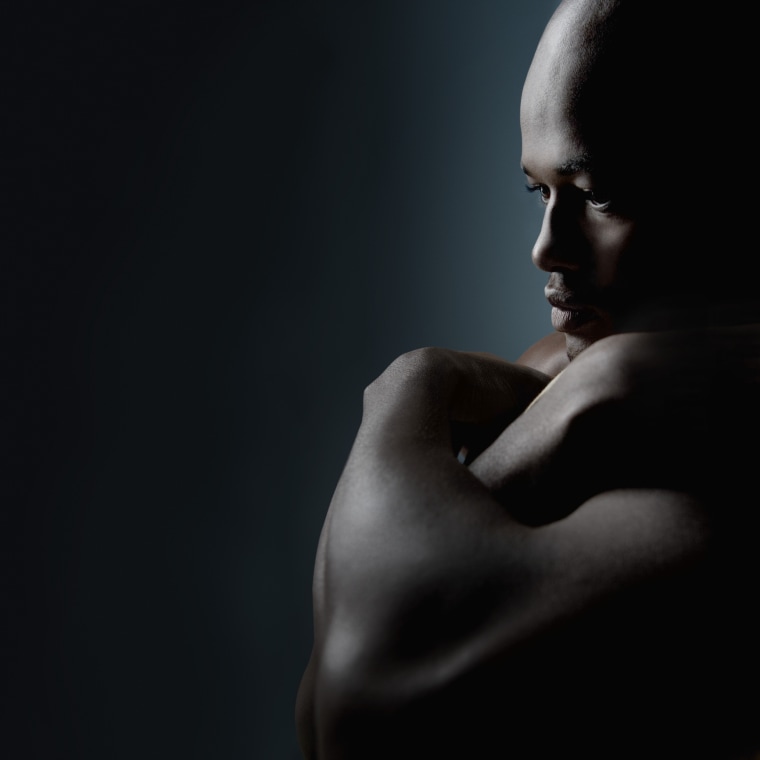A lack of self-acceptance can hurt you. It can also hurt your partner.
More than 1,000 gay and bisexual men surveyed at gay venues in Atlanta were more likely to be both victims and perpetrators of intimate partner violence if they rated high for internalized homophobia, according to a new research study conducted by the University of Michigan and Atlanta’s Emory University.

The men were asked to respond to statements like “I would prefer not to be gay,” “I’m worried about being gay” and “I try to hide my sexuality when I’m around others.”
“Struggling with your own identity could really lower your self-esteem. If you’re constantly told that you’re not normal, that your same-sex attractions aren’t normal, you start to question it yourself… Maybe you lower your own value, and maybe you’re more likely to stay with a partner who’s violent, because you’re more likely to tolerate violence in a relationship” said study co-author Rob Stephenson, the Vice Chair for Research at University of Michigan’s Department of Health Behavior and Biological Sciences.
Stephenson conducted the study with Emory University’s Catherine Finneran, a Senior Public Health Program Associate at the Rollins School of Public Health. Their findings, they say, represent the largest sample ever to look at intimate partner violence among men who sleep with men.
RELATED: Domestic Violence Presents 'Unique Vulnerabilities' to LGBTQ Community
Previous research had shown that gay and bisexual men are disproportionately affected by domestic violence at rates that proportionately mirror those of heterosexual women. But according to an October 2016 report on LGBTQ intimate partner violence published by the National Coalition of Anti-Violence Programs (NCAVP), men who are victimized by domestic violence often find themselves with no support services at all. Many male victims aren’t screened for partner violence even after repeated visits to hospitals—and when they try to access emergency shelter, they are routinely turned away from a shelter system that is geared exclusively toward housing women.
Emily Waters, the Senior Manager of Research and Policy at the New York City Anti-Violence Project, told NBC OUT the movement to fight domestic violence was created within a “single framework.”
“That single framework just completely shut out other experiences,” Waters said. “For men in particular, that way of screening for domestic violence means they are automatically going to be seen as perpetrators when they try to access services. The assumption is, if you’re a man you're probably not experiencing violence and you’re probably trying to enter the shelter to find your abused partner.”
But as research has become more nuanced and expanded into different types of relationships and communities—and as the language to understand and describe intimate partner violence enters everyday lexicon—there’s been a gradual shift.
“We are starting to recognize that men experience violence from both men and women,” Waters said. “And gay, bisexual and queer men are experiencing really high rates of violence that were never really talked about before.”
While the concept of men being victimized by abusive or violent partners is still new to some, researchers are beginning to delve deeper into the causes and motivations that spur intimate partner violence in male relationships. Stephenson and Finneran’s study examined the impact of what they call “minority stress” on relationships—defined as homophobic discrimination, racism, internalized homophobia and anticipated discrimination.
“Too often people talk about stigma as one thing,” Stephenson told NBC OUT, “But we need to break it down into what we think is going to happen to us, what actually happens to us and then how we feel about ourselves.”
Some of those results are heartbreaking. Men who reported being victims of racism were more likely to report controlling their partners by not letting them see friends or family. They were also likely to be on the receiving end of all forms of domestic abuse, from physical to emotional. Overall, the most common form of abuse experienced by those on the receiving end was emotional, followed by physical and/or sexual violence, excessive monitoring, controlling and HIV-related violence.
The study found that men sometimes report being both perpetrators and recipients of intimate partner violence—a spectrum effect that blurs what is often seen as a firm boundary between victims and abusers.
“We have a hard time talking about perpetration,” Waters said. “But the foundational concepts of intimate partner violence—things like power and control—if you have someone dealing with a lot of internalized shame, and has no power in other areas of their life, they may be more likely to enact that power and control in their relationships.”
Stephenson noted that the Atlanta survey reflects the experience of gay and bisexual men living in the South—where an intersection of red-state homophobia and racism could make for a more stressful climate. It’s tough to say whether all American men who sleep with men would report the same rates of violence, but similar studies have shown that LGBTQ people experience domestic violence at proportional rates that may even surpass those experienced by straight women.
While all forms of domestic violence have complex roots, the Atlanta study seems to show a clear link between sexual minority stress and male-on-male partner abuse.
“Living in a homophobic environment exerts a certain level of stress in relationships, and one way that stress can manifest is violence,” Stephenson said. “So tackling homophobia is one way to reduce violence in relationships.”